Fifty Million Children Have Been Uprooted Worldwide: What Will the West Do About It?
The most powerful (and richest) countries are the least likely to accept refugees.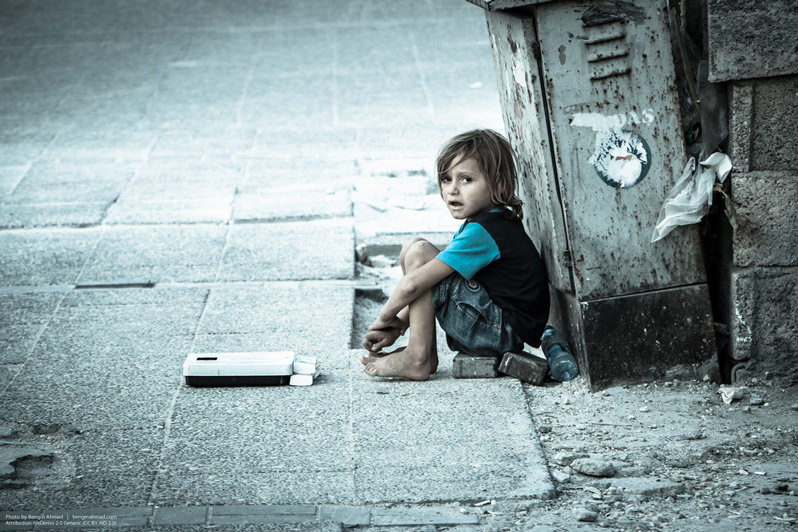 Three and a half million refugee children aren't receiving an education. Bengin Ahmad (CC BY-ND 2.0)
Three and a half million refugee children aren't receiving an education. Bengin Ahmad (CC BY-ND 2.0)
By Vijay Prashad / AlterNet
‘no one leaves home unless
home is the mouth of a shark
you only run for the border
when you see the whole city running as well
your neighbors running faster than you
breath bloody in their throats
the boy you went to school with
who kissed you dizzy behind the old tin factory
is holding a gun bigger than his body
you only leave home
when home won’t let you stay.’
— Warshan Shire (2015).
Reading the new UNICEF report – Uprooted: the growing crisis for refugee and migrant children (September 2016) – on child refugees is a sobering experience. The main statistic that informs the report should be on the lips of everyone on the planet: there are fifty million children who have been uprooted worldwide. Fifty million.
Children make up a third of humanity. Yet, half of the refugees on the planet are children. When we hear politicians talk of ‘refugees’ with venom, keep in mind that one in two of those whom they pillory are children who have been thrust out of their lives of relative stability to lives of total uncertainty. Life on the run and in refugee camps will leave these children without the elements of human development – decent nutrition, shelter, education and leisure. They live lives at the edge, bare lives, lives of great distress and trauma. The world that is being produce is a world with large numbers of displaced people who have been denied social goods.
UNICEF’s report shows that an increasing number of uprooted children cross borders on their own. In 2015, over a hundred thousand unaccompanied minors applied for asylum in seventy-eight countries. This is triple the number of unaccompanied minors who were in the same position in 2014. European governments report that there are at least ten thousand children lost in Europe. They were logged at the border, but then they disappeared from any monitoring. It has been found that half the unaccompanied children that arrive at European border posts vanish from the refugee centers. Europol reports that there is ‘tremendous amount of crossover’ between those who smuggle people into Europe and the gangs of traffickers for forced sexual and labor exploitation. Brian Donald of Europol said that ‘modern, enterprising, organized criminal gangs go where the opportunity is high and the risk is low.’ Child sexual and labor trafficking is one such area.
Flight.
What are these children fleeing? From Central America, the children flee gang violence and extreme poverty. Parents who fear that doing nothing to protect their children sometimes actively send them along the transit routes, hoping against hope that they will somehow make it to a better place. These journeys are dangerous, as another UNICEF report – Broken Dreams: Central American children’s dangerous journey to the United States (August 2016) – makes plain. Most of these children are from El Salvador, Guatemala and Honduras – countries with very high murder rates and with serious gang problems. Many children – as many as sixteen thousand in the first six months of 2016 – were stopped at the Mexican border. Perhaps as many as these children vanished into the nets of kidnappers or have been murdered. UNICEF found evidence that drug cartels threaten the children to carry drugs for them across borders. This puts the children in an even more vulnerable situation. Six out of ten girls, Amnesty International reports, are raped during the journey. If the children make it to the United States, there is a good chance that they will be apprehended and deported.
Half of the child refugees come from Afghanistan and Syria. Many of these children are under thirteen years old. They flee the worst of the violence. War has beset Afghanistan for at least the past sixteen years, if not over the course of the past two generations. Stability is not in the foreseeable future. To flee is a human response. The first route is to flee the countryside for the expanding slums of Kabul. With no electricity or water in these slums and few opportunities for the adults and children, flight for a second time is the normal course of things. Syria has only been at war for five years, but its devastation is perhaps greater than in Afghanistan. Half the population is displaced, with all social indicators in free-fall. The population there also does not see any light at the end of the tunnel. No wonder that here too the displaced keep on the move till they find themselves either in UN camps in Jordan or along the pathway from Turkey to Europe.
In fact, the very language we have is limited. The term ‘refugee’ denudes the people of their humanity. They are human beings who have seen cruel, human intentions break apart their possibility of survival and reduce them to the condition of refugee. No-one wants to be a refugee. It is not an identity of pride. It is a mark of inhumanity. It is not the refugee who should be ashamed. It is those who have allowed the production of such historical levels of displaced people who should consider what their policies have wrought.
Responsibility.
Why is it that the most powerful (and richest) countries are least willing to accept refugees? Turkey hosts the largest number of recent refugees, while Lebanon has the largest percentage of refugees in relation to its population. If you look at income-level, the Democratic Republic of the Congo, Ethiopia and Pakistan have the highest concentration of refugees. These are countries with scare resources that – because of geography – have had to absorb large numbers of displaced people. They simply have no choice.
One in five people who live in Lebanon are refugees. In the United States, one in twelve hundred people are refugees. The disparity is stark. One cannot expect the US to take as many refugees as Lebanon. It is simply not going to happen. On the other hand, the animosity against refugees – sharpened by lone wolf terror attacks – is painful. Is that rhetoric against refugees targeted at those children, who make up half of the displaced people on the planet?
Zones of conflict and zones of poverty are not habitable by anyone. Survival is made hard here. Serious attention to these issues should be at the top of the table for the world’s leaders who gather at the UN this week. But they will not tackle these with the kind of attention required. The powerful states will give lip-service to the problem, but turn away from them. They have an outsized role in the production of crisis and take an undersized role in the relief for the detritus of crisis. This is the scandal of the present period.
Your support matters…Independent journalism is under threat and overshadowed by heavily funded mainstream media.
You can help level the playing field. Become a member.
Your tax-deductible contribution keeps us digging beneath the headlines to give you thought-provoking, investigative reporting and analysis that unearths what's really happening- without compromise.
Give today to support our courageous, independent journalists.

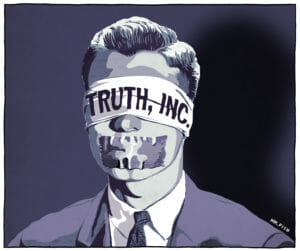
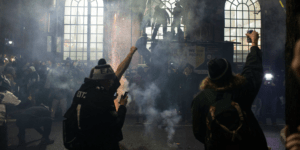
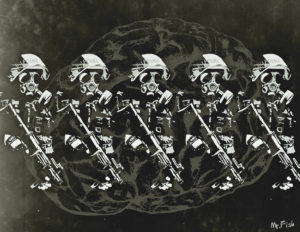
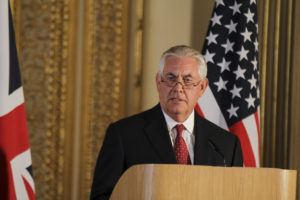

You need to be a supporter to comment.
There are currently no responses to this article.
Be the first to respond.